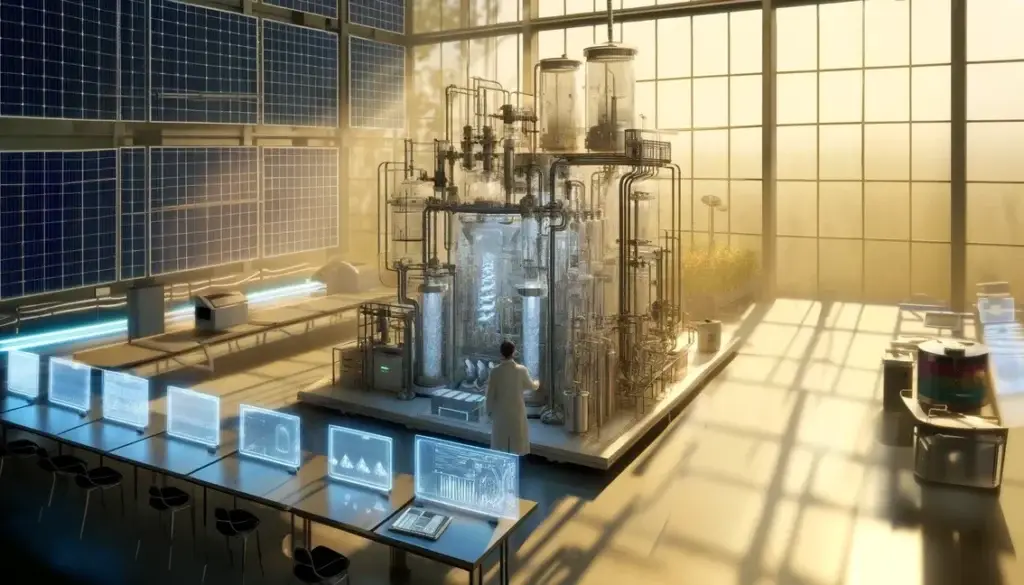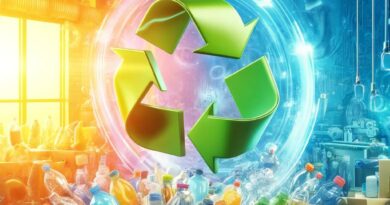Harnessing Solar Energy for CO2 to Sugar Conversion

In a study published on March 25, 2024, in Nature Communications, a team of researchers from several Chinese institutions has unveiled an innovative approach to food production. The collaboration includes experts from the Hefei National Research Center for Physical Sciences at the Microscale, the Suzhou Institute for Advanced Research, the CAS Key Laboratory of Low-Carbon Conversion Science and Engineering, the School of Chemical Engineering at the University of Chinese Academy of Sciences, and the Key Laboratory of Functional Molecular Solids. Their work presents a novel method to produce sugar directly from carbon dioxide (CO₂) using sunlight, potentially revolutionizing traditional agriculture.
The Photovoltaic-Biocatalytic Link
The researchers have developed a system that combines electrocatalysis, powered by photovoltaics (solar energy), with biocatalysis, involving a cascade of five genetically engineered enzymes. This integrated approach efficiently converts CO₂ into L-sorbose, a type of sugar, achieving an energy conversion efficiency more than three times that of natural photosynthesis.
Traditional food production relies heavily on photosynthesis, a process with relatively low energy conversion efficiency. This inefficiency contributes to various agricultural challenges, including excessive pesticide use, high water consumption, and limited arable land. By bypassing the need for photosynthesis, the new system offers a sustainable alternative that could enhance food production efficiency and support a carbon-neutral economy.
The Process Explained
- Electrocatalytic Conversion: The process begins with the conversion of CO₂ into formate using electrocatalysis powered by solar energy. This step effectively captures carbon dioxide, a significant greenhouse gas, and transforms it into a usable chemical form.
- Biocatalytic Transformation: The formate is then converted into L-sorbose through a series of enzymatic reactions. The researchers engineered a cascade of five enzymes using genetic mutation and bioinformatics to optimize their activity and stability.
- Customizable Flow System: The entire process operates within a flow system that can be customized. This flexibility indicates potential applications in producing a variety of food substances directly from CO₂.
Challenges and Future Directions
While the study marks a significant advancement, the researchers acknowledge several challenges:
- Complex Enzyme Engineering: Designing and optimizing the enzyme cascade is complex and requires further research to enhance efficiency.
- Cost and Efficiency Optimization: Reducing operational costs and improving overall efficiency are critical for practical implementation.
- Scaling Up: Transitioning from laboratory-scale experiments to industrial-scale applications poses significant technical and logistical challenges.
Despite these hurdles, the innovative method demonstrates a promising step toward sustainable and efficient food production. By directly converting CO₂ into edible sugars using renewable energy, this approach could reduce dependence on conventional agriculture, decrease environmental impact, and contribute to combating climate change.
Implications for the Future
The ability to produce food directly from carbon dioxide and sunlight has profound implications:
- Food Security: Enhances the potential to meet global food demands without relying solely on traditional farming.
- Environmental Impact: Reduces the ecological footprint associated with agriculture, such as deforestation, soil degradation, and greenhouse gas emissions.
- Renewable Energy Utilization: Leverages solar energy, promoting the integration of renewable energy sources into food production systems.
This pioneering research offers a visionary glimpse into the future of food production. By harnessing the power of sunlight to transform CO₂ into essential nutrients through advanced biocatalysis, the study sets the stage for innovative solutions to some of the most pressing challenges facing humanity today. Continued research and development in this field hold the promise of sustainable, efficient, and environmentally friendly food production on a global scale.
References
Keywords
- Carbon Dioxide Conversion, Photovoltaic Electrocatalysis, Biocatalysis, L-sorbose Production, Renewable Energy, Sustainable Food Production, Enzyme Engineering, Carbon-Neutral Economy, Climate Change Mitigation, Synthetic Biology
Disclaimer: The information presented in this article is for informational purposes only and reflects the findings of the referenced study as of the publication date. For detailed information, please refer to the original research paper or consult professionals in the field.



